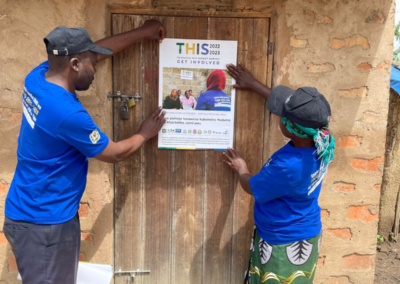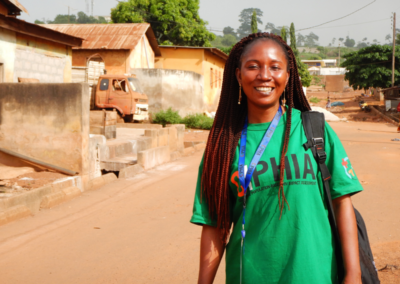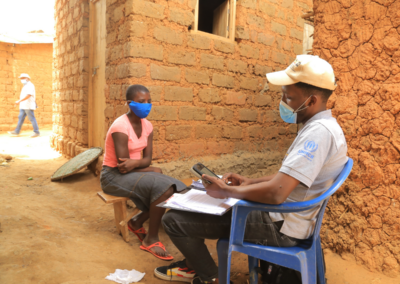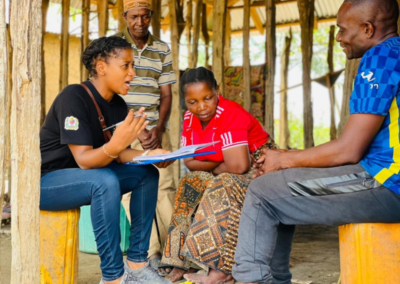The Haiti Population-based HIV Impact Assessment (HAPHIA) was launched in June 2019 to measure the status of the HIV epidemic within the country. As part of the survey, 17,722 adults aged 15-64 years took part in HIV testing and counselling with return of results as well as additional laboratory tests, and were interviewed about uptake of HIV prevention, care, and treatment services.
HAPHIA found that the national HIV prevalence in Haiti was 1.8 percent. HIV prevalence was higher among women, 2.2 percent, than men, 1.4 percent.
“The HIV program in Haiti benefits from HAPHIA results regarding HIV incidence, awareness of HIV status, antiretroviral treatment uptake, and prevalence of viral load suppression, as well as antiretroviral drug resistance data among those with recent infections,” said Barbara Roussel, MD, MSc, who was ICAP’s Haiti country director during the planning and data collection period for HAPHIA. “With these results, decision-makers will be able to reassess health policies and tailor the HIV services to address the identified gaps and needs.”
HAPHIA was implemented by ICAP at Columbia University in partnership with the Ministry of Public Health and Population (MSPP) and with support from the U.S. Centers for Disease Control and Prevention (CDC) through funding by the U.S. President’s Emergency Plan for AIDS Relief (PEPFAR). HAPHIA was part of ICAP’s multi-country PHIA project designed to assess the status of the global HIV epidemic and to inform policy and programs within countries.
The Haiti survey showed that among individuals aware of their positive HIV status in the country, 93 percent were receiving antiretroviral therapy, and among this group, 87 percent had achieved viral suppression. However, a key gap was noted in the first UNAIDS 90 target – only 41 percent of those living with HIV were aware of their HIV-positive status. This finding highlights the need for concerted efforts to expand HIV testing services in Haiti.
“ICAP has now conducted over 20 PHIA surveys around the world in different countries, and the most significant gap in achieving the UNAIDS 90 targets is knowledge of HIV-positive status,” said Jessica Justman, MD, senior technical director at ICAP and principal investigator of the PHIA project. “It’s essential that we remain vigilant in addressing barriers to knowing one’s own HIV status and finding ways to overcome barriers to access all HIV services. This vigilance is even more important now that international targets have moved to 95-95-95 – where 95 percent of those living with HIV know their status, 95 percent of those who know their status are on treatment, and 95 percent of those on treatment are virally suppressed.”










